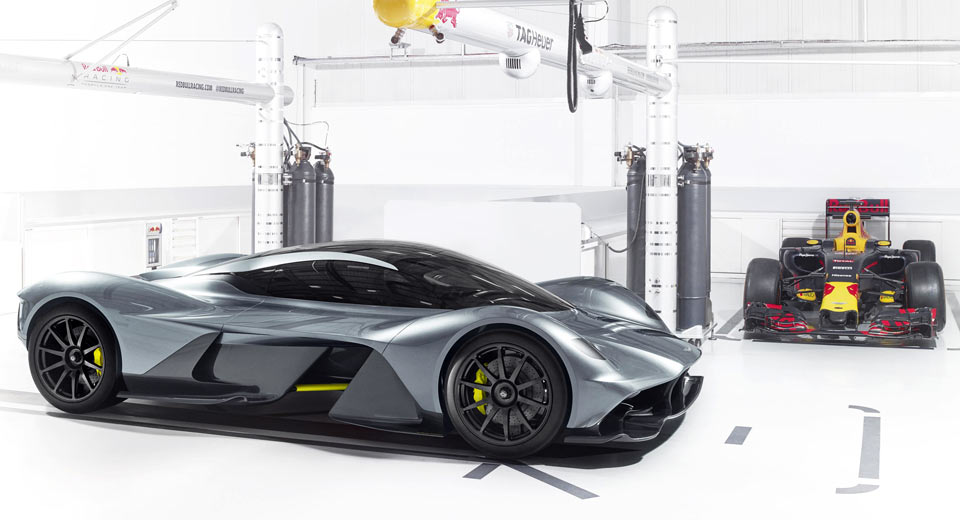The forthcoming Aston Martin Valkyrie is going to be fast. Very fast. There’s never been any doubt about that. But just how fast are we talking here?
Close to F1 cars, according to the latest. Speaking with Motor1.com, Aston’s special operations chief David King said that, more than any existing road car, grand prix racers represent the performance target for the upcoming super-mega-hyper-car.
The Valkyrie is being produced in two versions: one certified for the road, and the other (like the Vulcan) restricted to the track. “Even the road car is going to be extraordinarily fast on a track in the right hands,” said King. “Certainly for the track version we’re into lap times approaching Formula One lap times. That’s definitely within sight.”
Just what “approaching” means in this context, exactly, is anyone’s guess. But it certainly speaks to just how fast Aston and its partners at Red Bull Racing expect their joint project to hustle around a track.
How can that be, you wonder, when F1 cars are, and always have been, the fastest machines on the track? Because of regulations. While the performance potential of modern F1 cars keeps increasing, the FIA keeps trying to rein them in, lest they become too unsafe to actually operate on conventional tracks. While the Valkyrie is being designed, in its base form, to comply with road-use regulations, it isn’t subject to the kinds of performance restrictions that F1 cars are.
So where today’s grand prix racers employ 1.6-liter turbocharged V6 hybrid powertrains producing around 800 horsepower, the Valkyrie (though still unconfirmed) is slated to pack a 6.5-liter V12 – also electrically assisted but naturally aspirated – expected to kick out some 1,130 hp. The Valkyrie will be heavier, mind you, projected to tip the scales at under 2,300 pounds (compared to a modern F1 car’s 1,500), but that extra 300+ horsepower, and all the tricks that Aston and Red Bull have to throw at it, will apparently bring their performance to comparable levels.









